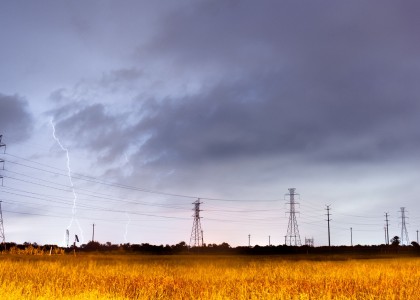WASHINGTON—Energy efficiency is a diverse and immensely powerful toolkit that has saved hundreds of billions of dollars in energy costs while preventing sharp increases in greenhouse gas emissions, but progress is now at risk of stalling, a report today finds. The first-of-its-kind report from the Alliance to Save Energy, the American Council for an Energy-Efficient Economy, and the Business Council for Sustainable Energy provides a consolidated analysis of the sweeping impacts of energy efficiency investments, policies, and innovation and the potential energy savings still ahead across a variety of sectors including residential and commercial buildings, industry, and transportation.
The Energy Efficiency Impact Report quantifies the scale of U.S. efficiency investments made over decades and their many impacts, ranging from energy savings, job growth, and reduced carbon emissions to public health and worker productivity savings. It notes these investments since 1980 have prevented a 60% increase in energy consumption and carbon emissions and are responsible for half of the carbon dioxide emissions reductions in the U.S. power sector since 2005. It also highlights the six most impactful policies – fuel economy standards, appliance and equipment energy efficiency standards, ENERGY STAR, utility sector efficiency programs, federal research and development, and building energy codes – which have saved an estimated 25 quadrillion BTUs of energy in 2017, equal to 23% of total U.S. energy use.
Despite these successes, the biggest opportunities remain ahead, and growth in smarter technologies and more responsive energy management could lead to new savings opportunities. Energy efficiency improvements using existing technologies alone could deliver more than 40% of the carbon reductions globally to meet Paris Agreement climate targets, and fully half of emissions reductions needed in the U.S. But the U.S. is not on this track to achieve these reductions, and even risks sliding backward, the report says.
While federal spending on energy efficiency has increased slightly from 2016 to 2018, estimated total domestic energy efficiency investment levels have fallen by 18%, the report warns. Energy intensity in the U.S. – the ratio of energy use to economic output – worsened slightly in 2018.
“There’s no question that greater energy and carbon reductions are technically and economically feasible through more ambitious action on energy efficiency, the question is will we treat this with the urgency it deserves,” said Clay Nesler, president of the Alliance to Save Energy. “This report shows that energy efficiency has been, and must continue to be, the leading solution to address the worsening climate emergency while simultaneously growing our economy and improving the health of our communities.”
“Energy efficiency can slash US energy use and greenhouse gas emissions by 50% by 2050, getting us halfway to our climate goals,” said Steve Nadel, executive director of the American Council for an Energy-Efficient Economy. “Given the urgency of the climate threat, we need robust investments in energy-efficient appliances, buildings, vehicles, and industrial plants.”
“Energy efficiency is the enabler for optimization and integration of clean energy technologies, and we need to scale it urgently to meet our energy and environmental objectives,” said Lisa Jacobson, president of the Business Council for Sustainable Energy. “Scaling energy efficiency is also critical to enhancing the resilience of energy systems. Recent disasters have strained energy infrastructure and buildings, costing billions. Upfront investments in energy efficiency not only decrease emissions but mitigate extreme weather impacts.”
The new report uses 54 indicators to quantify energy efficiency impacts, drawing primarily on data from federal and international sources. It examines efficiency progress in a wide variety of sectors including utilities, buildings, industry, and transportation, and explores the impacts of policy and other market tools used to incentivize energy efficiency.
The full report will be published at: http://energyefficiencyimpact.org/
About the Alliance to Save Energy
Founded in 1977, the Alliance to Save Energy is a nonprofit, bipartisan alliance of business, government, environmental, and consumer leaders working to expand the economy while using less energy. Our mission is to promote energy productivity worldwide – including through energy efficiency – to achieve a stronger economy, a cleaner environment, and greater energy security, affordability, and reliability.
About the American Council for an Energy-Efficient Economy
The American Council for an Energy-Efficient Economy acts as a catalyst to advance energy efficiency policies, programs, technologies, investments, and behaviors.
About the Business Council for Sustainable Energy
BCSE is a coalition of companies and trade associations from the energy efficiency, natural gas and renewable energy sectors, and includes investor-owned utilities, public power, independent power producers, project developers, equipment manufacturers, and environmental and energy market service providers. Established in 1992, the Council advocates for policies that expand the use of commercially available clean energy technologies, products and services.
Contact:
Alliance to Save Energy: Ben Somberg, 202.530.2223, bsomberg@ase.org
American Council for an Energy-Efficient Economy: Kate Doughty, 202.507.4014, kdoughty@aceee.org
Business Council for Sustainable Energy: Julia Selker, 202.785.0507, jselker@bcse.org
The American Council for an Energy-Efficient Economy acts as a catalyst to advance energy efficiency policies, programs, technologies, investments, and behaviors.



